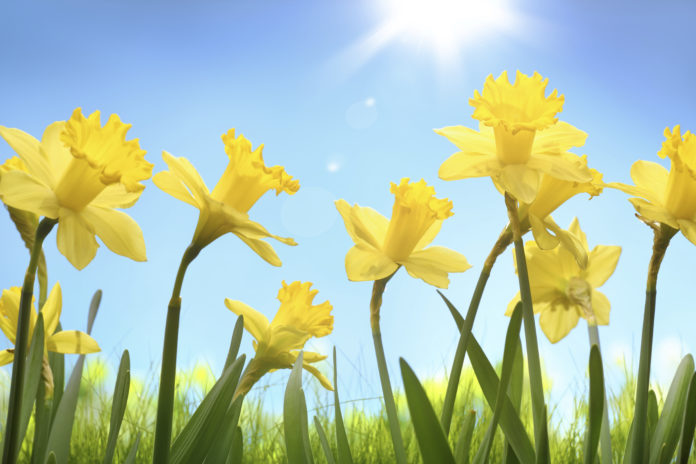When I lived in Texas, I loved the annual art show put on by the bluebonnets across fields and highway medians; it is one of the most beautiful sights I know. They are long gone by now. April in Texas is early summer. In New England, we are still wearing our coats. The daffodils and tulips, along with some hardy wildflowers, are the harbingers of hope for more warmth. The crocuses came up with snow around them weeks ago; they are too optimistic to be believed.
Even without a pandemic, April is a hard month in this part of the world. April showers may bring May flowers but it also makes the people surly. Then close all the bars and restaurants and tell us to stay inside and we are ready to live into our reputation of being gruff. But the grey doesn’t last anymore than the bluebonnets.
Very little, if anything, of our existence is permanent.
One of the choices we are called to make in most any moment is whether to be present as it passes or to act like we are waiting for a bus and nothing matters until it’s time for us to go. Well, the choice is not necessarily that clear cut, but my point is if we equate significance with permanence we are going to miss a lot of stuff–and we might miss our bus as well.
“Pay attention to the lilies,” Jesus said, which makes me wonder if they were the bluebonnets and daffodils of Palestine. “They aren’t here long, but that’s not even the point. They take our breath away with their beauty. Be like them.”
The temporary nature of our existence is more evident for many of us in these days than it has been, perhaps. I mean, we all know we are going to die, but I don’t remember a day when the Boston Globe included twenty-one pages of obituaries.
How then, do we live knowing we aren’t going to last long? How do we consider the lilies, daffodils, and bluebonnets?
The reason the wildflowers are on my mind, besides being able to see the ones blooming in our back yard, is I read David Whyte’s definition of joy, which centers on the temporariness of it all–and the generosity.
“Joy,” he says, “is giving ourselves away before we need to.”
So, too, say the wildflowers. They know it isn’t going to last long, but they give it all away to make us believe spring is here. When they aren’t flowering, we don’t give them much thought. They finish flowering and go to seed, then they die. The flowers that bloom next year will not be the same ones we saw this year. They are connected, but they are not the same. We talk about the flowers being back, but we are seeing fresh joy–a continuity, but not a repetition, much like human history. Our legacy is connectedness, not permanence.
One of the hard things about this pandemic is we don’t know when it will end. In that way, it feels like living with depression in that it feels endless, bottomless, monotonous. At some level we know this can’t and won’t go on forever, but it feels interminable. Joy is temporary, surprising, and resonant. Depression is a sense of scarcity; joy is generosity unbound, even if just for a moment.
Jason Isbell is one of my favorite songwriters and has written two of my favorite love songs. One of them is called “If We Were Vampires” and it speaks to what it means to be living in time:
if we were vampires and death was a joke
we’d go out on the sidewalk and smoke
and laugh at all the lovers and their plans
I wouldn’t feel the need to hold your hand
maybe time running out is a gift
I’ll work hard ’til the end of my shift
and give you every second I can find
and hope it isn’t me who’s left behind
it’s knowing that this can’t go on forever
likely one of us will have to spend some days alone
maybe we’ll get forty years together
but one day I’ll be gone
or one day you’ll be gone
“Maybe time running out is a gift . . .” Whyte, again:
I was here and you were here and together we made a world.
I am here. You are here. Life is short. What kind of world will we build?
These days are showing us all kinds of things that are wrong with the world we have been building. We have heard over and over how strong our economy is and yet it has been brought crashing down by a virus. We are not as invincible or exceptional as we thought we were, or as we were told we were. We don’t have much time. Perhaps we have missed the chance to give ourselves away before we need to, but it is not too late.
One day I’ll be gone. One day you’ll be gone. For now, we’re here.
Peace,
Milton
PS–You have to hear this song.

Milton, I experienced the prolific bluebonnets for the first time this spring; they are magnificent. Now the Indian paint brush is splashing the roadsides with color, and I am in awe.
They are amazing. I am glad you got to see them.